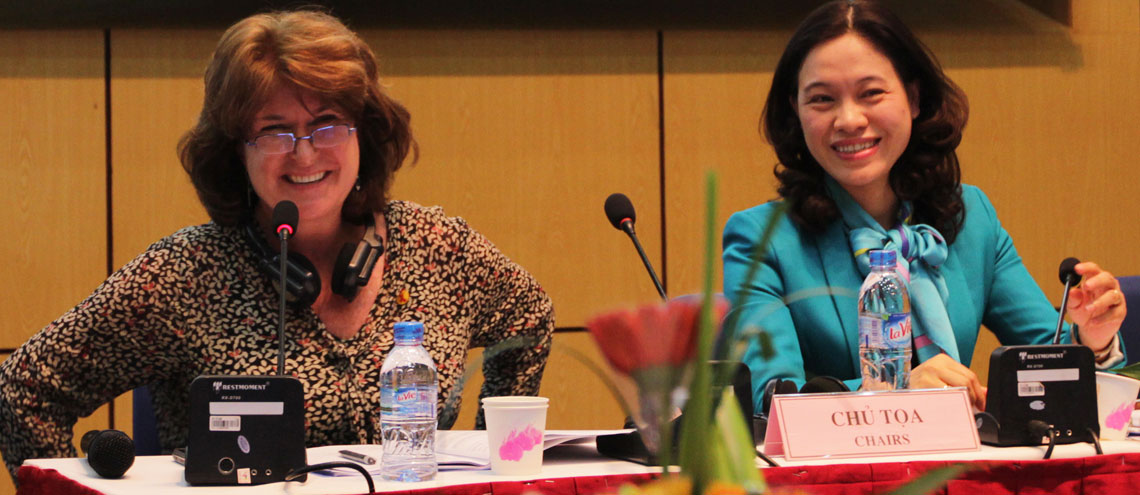UNAIDS Viet Nam Speech at National Guidelines on HIV Interventions for MSM Workshop 19/12/09
Dr. Chu Quoc An, Deputy General Director of the Vietnam Administration for HIV/AIDS Control, colleagues and friends.
Thank you for being here today. Your contributions today will assist in the drafting of the long-awaited National Guidelines on HIV Interventions for MSM. Thanks to you, people at risk for HIV will have greater access to HIV services. Thanks to you, they and their partners will have greater protection from contracting HIV and greater support for mitigating the effects of HIV on their lives. Today’s consultation workshop is a silent earthquake. MSM in Viet Nam have been at high risk for HIV for a long time, yet interventions still fall far short of need. Many people, for many years, have been building up pressure around this issue, advocating for change, and thanks to them – and thanks to you – today we are rocking the foundations. Today’s silent earthquake will rock the foundations of social and cultural injustice, prejudice and ignorance. If we do our work well, nothing will be the same after this quake.
Unfortunately for our work here today, those foundations of stigma and discrimination are deep. And not just in Viet Nam. Sex between men is illegal in 79 countries. In five countries it is punishable by the death penalty. In four countries, a man who is openly MSM cannot receive an entrance visa. Only forty-eight countries around the world prohibit employers from discriminating based on sexual orientation.
In June of this year, India legalized sex between men. Then in October of this year the Ugandan Parliament proposed an Anti-Homosexuality Bill that, if passed, will introduce the death penalty for PLHIV who are found, or reported to be, engaging in MSM behaviour. The human community goes forward, and it goes back again, but as Confucius said 2,500 years ago: It does not matter how slowly you go as long as you do not stop.
I urge you to keep three principles in mind throughout today’s discussion:
One, actions must be grounded in an understanding of, and commitment to, human rights. Viet Nam sets a strong regional example in terms of rights-based legislation. Let’s carry this forward today by focusing on the equal right of MSM to access health services, to request and deny an HIV test, to benefit from harm reduction activities, and so on.
Two, actions must be evidence-based. There is ample evidence that, in concentrated epidemics like Viet Nam’s, MSM are disproportionately at risk for HIV. There is also clear evidence that combined interventions are most effective. We should have interventions that comprise and link the individual, community and institutional levels.
Third, actions must be multisectoral and include the active participation and leadership of MSM and communities affected by HIV.
Thank you again for taking the time to provide your valuable insights on these draft documents. With your support, I believe the silent earthquakes happening not just in Viet Nam, but in the world, will replace foundations of stigma and discrimination with those of tolerance and compassion.
Thank you and best wishes for a successful workshop. Chuc suc khoe.




